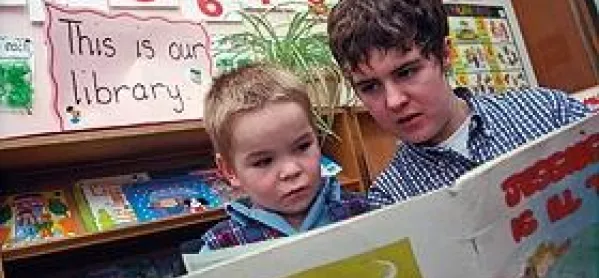Primary pupils become much better readers if tutored by older children - but benefit far less if their “peer tutors” are the same age.
And if teachers use weaker readers or less well-behaved pupils as tutors rather than the “good” pupils, there will be a particular benefit - provided the pairing is done according to ability.
These findings are the latest results of the Fife Peer Learning Experiment, a long-term study looking at the effects of peer tutoring in reading and maths in more than 100 schools in the authority.
Both tutors and tutees benefit where there is an age-gap, according to Keith Topping, professor of education and social research at Dundee University and one of the report’s authors.
“Everybody in the older class is involved - that means that children who would never have thought of themselves as candidates for helping other children do indeed get placed in exactly that role,” he said.
“There is an enormous impact on the tutors’ sense of efficacy and personal worth and that has consequences in terms of gains in their own reading competence.
“They get considerably more practice and have the demanding task of not only reading a book, but reading some of it out loud and pausing to ask intelligent questions about it.”
The tutees also received a lot of private and personal attention, but it was from children who were older and more mature and seen as more responsible in the school, so the effect on the tutees was “quite considerable”.
Professor Topping advises teachers to rank pupils in both the older and the younger age-group according to their ability, and pair the most able reader among the older children with the most able reader from the younger group, and the least able child from the older group with the least able among the younger children to maintain the differential in ability.
Teachers might be concerned about the pairing of the weakest tutor with the weakest tutee, he said, but his research had shown these children often benefited the most.
Peer tutoring allowed teachers to move from being a “sage on the stage” to a “guide on the side”. This meant they could monitor and intervene to coach individual pairs of children to work in a more effective way.
His research did not look specifically at peer assessment, which is used increasingly in schools across Scotland. Nevertheless, Professor Topping believes that using older children to assess younger ones is likely to be more beneficial than peer assessment within a year group, especially when it comes to behaviour in the playground.
“When it is in a contentious area, like peer assessment of general behaviour in the playground, it is likely to be much more accepted by those who are assessed if their assessors are older,” he said.
Assessors who themselves had behavioural problems could also benefit from this.
Teachers should think about using their “less immediately probable” pupils as peer assessors, as well as just the “little goodie two-shoes” in the class, he suggested.
julia.belgutay@tes.co.uk.
Original headline: Peer tutoring works better with age gap and matched abilities, study finds




